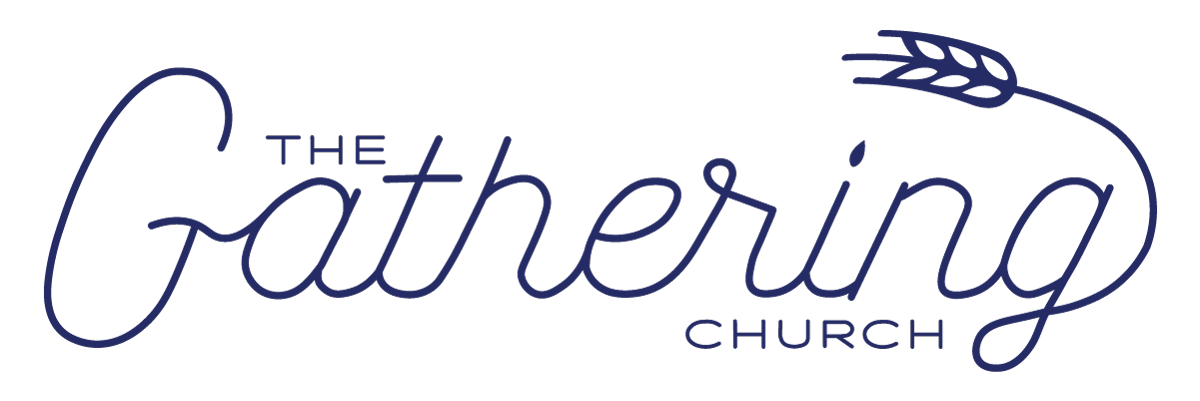![]()
Present to God
We want to become more and more aware of God’s presence among us and to help others awaken to the God who knows and loves us all. Instead of busy-ness, distraction, and disconnection, we want God to show us how to be present and attentive to him and to each other.
Be a part of the worship life of the Gathering Church Email Evan.
Scripture
Each Sunday we feast together on the Word of God, asking that the Spirit work that Word into our lives throughout the week.
Listen to the most recent message:
Prayer
Prayer is an important part of our community.
In addition to, or perhaps primary to our singing and hearing of the Word on Sundays, we invite you to offer prayer requests during worship for our lives, our church community, and the wider community we serve.
You may write prayer requests during worship and submit them in a box at the back of the room. Our prayer team will pray for requests each day of the week. You may also email prayer requests to Pastor Evan.
Prayer Ministry Contacts: Laura Yost-Grande & Evan Talbert.
Communion
Communion is a remembrance of God acting for us in Christ, and a tangible practice of God’s continuing presence with us.
We serve communion each week during worship. If you are joining us online, we invite you to gather your elements before worship.
Names
This historic and highly symbolic act of physical remembrance of the death and resurrection of Jesus has been known by several names, each bears its own slight twist on what the meal is and means for us:
Lord’s Supper
Calling it the “Lord’s Supper” reminds us that, like the Passover meal Jesus shared, Christ is our host. Calling it the “Lord’s Supper” reminds us that this act set into motion the events of Christ’s betrayal, trial, and death on the cross for us.
Communion
Calling it “Communion” reminds us of the intimate union we experience with both Christ and fellow believers. This union spans place and time. When we receive Christ’s Body and Blood, we mysteriously receive the same Christ that believers have always received, and that our brothers and sisters of every nation, tribe, and tongue receive now. Calling it “Communion” reminds that Jesus identifies with us, with sinners, with the poor, and with the disenfranchised. Despite the hundreds of ways we are disconnected and dismembered as Christ’s body, Communion allows us to be “re-membered” as Christ’s Body.
Eucharist
Calling it “Eucharist” (based on the Greek word for “thanksgiving”) reminds us that this meal is a meal of gratitude, a meal of thanksgiving. Calling it the “Eucharist” reminds us to give thanks for all of God’s good gifts, and live into a world of abundance, creativity, and generosity.
Verbs
The verbs in the account of Jesus’ institution give us keys to appreciating and experiencing the fullness of just what was going on when he broke bread with his disciples and just what is going on when we break bread as his disciples.
Took
Jesus took normal, mundane ingredients, bread and wine, and charged them with meaning. life, and potential. He did this when he fed the five thousand,[3]when he fed the disciples on the way to Emmaus,[4] and on a greater scale he does this with our hearts and lives as we follow him.
Blessed
Jesus gives thanks to his Heavenly Father for creating and providing. The Father’s generosity and provision was on center stage in Old Testament stories like the unleavened bread of Passover,[5] the subsequent Manna in the wilderness,[6] and in the New Testament in Jesus’ prayer for our “daily bread.”[7] Jesus’ blessing acknowledges that “every good and perfect gift” indeed comes from God the Father.[8]
Broke
Jesus breaks the bread before he gives it to his disciples. The loaf is distributed around the table not unlike the fish and loaves on the hillside during Christ’s earthly ministry. Representing his own Body, Jesus’ breaking of the bread anticipates his body, the Bread of Heaven[9], being broken, and his blood poured out, for us and for our sins on the cross.
Gave
Jesus serves his disciples. The feast is not merely a buffet, but rather a hosted meal. God the Father “so loved the world that he gave his son,”[10] Jesus gives of himself and serves[11], the Spirit is promised and given to the disciples.[12] By consuming Christ’s Body and Blood, we are consumed, included, brought into the generous, graceful life of God.[13]
Encounter
Finally, at the end of Luke’s gospel, the risen Jesus walks with two of his disciples on the road to Emmaus. As they walk they attempt to process what Jesus’ death means and fail to recognize Jesus in their midst. It isn’t until he breaks bread with them that they recognize his presence.
Meeting the Risen Jesus
While Jesus ate with them, he “took bread, blessed and broke it, and gave it to them.” At this “their eyes were opened, and they recognized him.” Similarly, when we come to the table, when we remember and rehearse the gospel by receiving Christ’s body, we stand to have our senses refreshed as we encounter the risen Jesus.
Proclamation and Expectation
Paul’s exhortation in 1 Corinthians 11:26 “For whenever you eat this bread and drink this cup, you proclaim the Lord’s death until he comes,” hints that this meal acknowledges both the presence and absence of the Lord.[14] We remember and give thanks for the cross and the resurrection and for the fact that, in a sense, Christ is always near us, his kingdom is “at hand.” But, on the other hand, we desperately long, creation groans, for his return!
Baptism
Baptism is a powerful sign of belief, belonging and new life.
Call
Matthew’s gospel famously ends with a commission and a charge: “Therefore go and make disciples of all nations, baptizing them in the name of the Father and of the Son and of the Holy Spirit, and teaching them to obey everything I have commanded you. And surely I am with you always, to the very end of the age.” (Mt 28:19-20). Not only are we called to be baptized but to start a life of learning and following the One who promises to be with us.
Drama
Baptism, of itself, is not something that saves you or endears you to God. Instead it is a gift from God and a sign to yourself and the world of your new life in Christ. During baptism, we dramatize, with physical materials and motions the spiritual realities of our old and new lives. We act out our turning from our old life into the new and our commitment to follow Christ. We then are “buried” in the water and “raised” with Christ: clean, new and purified. We rise to be greeted by our new family who has witnessed and previously undergone the same process.
Repentance
Baptism gives us a physical, 3-D demonstration of repentance. When we repent we literally have our minds changed (gr: metanoia) and turn (hb: shub) away from the route we are headed apart from Christ and towards and on the new “Way, Truth, & Life” (Jn 14:6).
Death
Part of the drama of this event deals with death. Once confronted with the reality of Christ and the fact of our own mortality based on sin (Rom 6:23), we cling to Christ, who died on the Cross and was raised, and participate also in His resurrection. As we come out of the waters of baptism, we anticipate that resurrection and the new birth & new creation that is in Christ (Jn 3; 2 Cor 5:17).
New Life
This new life and new creation renews and reforms us. We now walk towards God (instead of away from), with Christ, and through the power and coaching of the Holy Spirit. Our birth makes us children of God and instills in us a transformed, renewed mind (Rom 12:2), a heart of flesh (vs. a heart of stone (2 Cor 3:3), and the teachable spirit of a disciple in a community of brothers and sisters in Christ.
Covenant Community
In our risen, new life we walk not only with the gift of the Holy Spirit, but as members of a new family. We are no longer our own, but are inextricably tied to those who are also in Christ. This means that we shall live peaceably with these fellow pilgrims in the faith. This community of fellowship is now only complete with you in it. As a member, you covenant to hear God and discern the Holy Spirit with others. You also commit to serving others, proclaiming the Good News of Christ, and living in light of the hope of Christ’s return.
Devotional Resources
Spiritual formation is for everyone. Here are some tools to help you worship and grow.
Advent/Christmas Devotionals
Immanuel ed. Curt Lowndes (2018)
Wait, Watch, Prepare, Praise ed. Curt Lowndes (2017)
The Advent of Our King ed. Chris Breslin (2012)
The Best of All is, God is With Us ed. Chris Breslin (2011)
The Best of All (kids devotional)
Watching and Waiting: reflections for the season of Advent ed. John Jay Alvaro (2010)
Lent/Easter Devotionals
Sweet Deliverance: A Lenten Reader ed. Chris Breslin (2014)
On the Way: Traveling with Jesus, a Lenten Focus on Luke’s Gospel ed. Mark Acuff (2017)
Bible Study/Spiritual Formation Tools
Spiritual Formation Primer by Richella Parham (Renovaré Resource)







